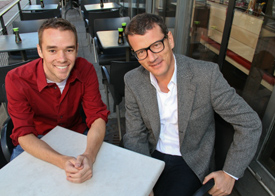Relationships More Important than Genetic Ties When Deciding Who Cares for Aging Family Members, MU Researchers Say
*Divorce and remarriage affect beliefs about who should care for elder relatives*
COLUMBIA, Mo. – America’s elderly population will nearly double by 2050, according to a Pew Research report. As baby boomers enter retirement, concern exists as to who will care for them as they age. Traditionally, children have accepted the caregiving responsibilities, but those caregiving roles are becoming blurred as more families are affected by divorce and remarriage than in previous decades. Now, University of Missouri researchers have found that relationship quality trumps genetic ties when determining caregiving obligations.
Lawrence Ganong, a professor and co-chair in the MU Department of Human Development and Family Studies in the College of Human Environmental Sciences (HES), studied how divorce and remarriage affect beliefs about who should care for aging relatives. He found that relationship quality, a history of mutual help, and resource availability influence decisions about who cares for parents and stepparents. (more…)


